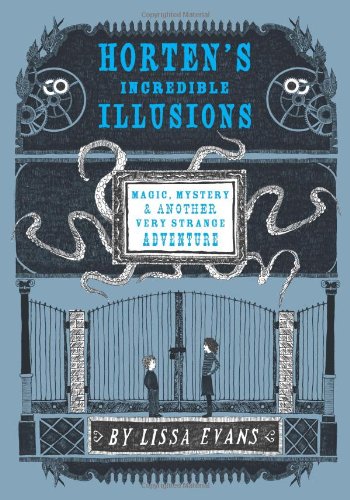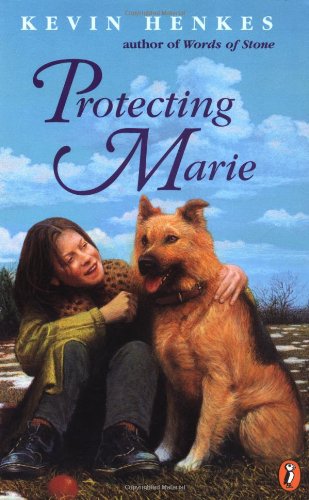
Opening Lines:
Hey, Chewbacca! How do you say 'loser' in Wookie?"
Don't look, Theo told himself. Don't look! No good can come from looking.
Theo Rollins grew several inches during the summer between seventh and eighth grade and now everyone expects him to be this amazing basketball star. Theo hasn't played much and can't really control his new, taller self that well, and so, when he makes the team, his lack of skill starts to make his life miserable. Soon he is trying harder than ever before and finding that he is failing at basketball, at the academic games team that he excelled on the year before, and that a girl that he maybe likes has coined the name Sasquatch for his on-court performance. Add to this his widowed dad who may have started secretly dating again and a false accusation that Theo has been stealing and you have a story that will hook both basketball players and those who don't get excited about the game.
This would be a great book for middle grades PE teachers to read aloud for five minutes per classroom while their students stretch out, but it also a good enough story to go in any classroom library. I don't know how much of the novel was written by the famous ballplayer Abdul-Jabbar, but the on-court scenes do ring true.
Theo's friend Gavin is a bit of a troublemaker, but there is nothing in this novel that would be likely to cause anyone to challenge it. It is probably best for readers as young as fourth or fifth grade, but could be enjoyed by readers well into high school. It is worth a look.
Curtis, Christopher Paul (1995) The Watsons Go to Birmingham 1963 Austin: Holt, Reinhart and Winston.

It had been years since I read this. I remembered that it had something to do with the Birmingham bombings, but the rest was kind of hazy. When I reread it, I realized that I had forgotten how much of it was funny, how much was touching, and how much was gripping (and even a little scary). If you haven't read it for years, check it out. If you have never read it before, you are in for a treat.
Kenny is a good kid, growing up in the largely African-American city of Flint, Michigan. When his older brother, Byron keeps getting into trouble and hanging out with kids his parents don't approve of, Mom and Dad decide it is time to take a road trip to Alabama, where Kenny will be spending the summer under the close eye of Grandma Sands. When they arrive in Birmingham, Kenny finds himself learning a lot more than he ever thought he could about goodness and evil in the world.
Along the way there are these wonderful moments, like when Byron gets his tongue stuck to the frozen car mirror when he and Kenny are supposed to be scraping the ice off it, or like when Kenny's friend cheats him out of almost all of his army guys, or some of the best moments in the book are when Byron stands up for Kenny. It is a fine book.
I suppose some parents might object to teaching kids about injustice and inequity and racism, but perhaps that would be a good reason to start some excellent discussions -- and Curtis does tackle these problems on a level that makes sense for a middle school audience.
Ideal for fourth grade and up, this book seems suited to both language arts and history classes.
Evens, Lissa ((2012) Horton's Incredible Illusions: Magic, Mystery, and Another Very Strange Adventure. New York: Sterling.

Opening Lines: Stuart Horton sat at the kitchen table and looked at the front page of the crummy little newspaper he'd just been given. Then, with a feeling of foreboding, he began to read.
I am a bit conflicted about this one. It is a nice enough story. Stuart Horton, a remarkably short 10- year-old, has inheirited his late Uncle's magician gear. Along with his friend April, he agrees to curate an exhibit of that gear at the museum. While trying to figure out how the tricks work, Stuart and April find themselves repeatedly transported to distant lands where they must solve puzzles to return home. Meanwhile, back home, someone is trying to invalidate Stuart's Uncles's will and take the magic tricks away from the kids.
All this is fine and makes a nice adolescent novel, but there were some things I got stuck on. For one, as a self-identified nerd, I took some issue with Stuart's dad, who makes crossword puzzles for a living and speaks in a strange hyper-vocabularied speech (for example, instead of "I'll make you a lunch", Stuart's dad says "And I shall prepare a portable container of noontide comestibles for you." (72)). Some of the adult characters are like that, A little too exaggeratedly quirky to seem real (or even funny). But the bottom line is, it is a nice enough book.
I could imagine some third graders reading this book, but it probably would work better for fourth through sixth as the oldest. There are one or two extremely minor cases of mild vulgarities being used ("hell" for example, on page 124.) I doubt this would be enough, however, to get the book challenged. This would be a good one for the classroom library. I doubt there is enough here to make studying it in class worthwhile.
Henkes, Kevin (1995) Protecting Marie New York: HarperCollins.

Opening Lines: Fanny Swann popped the only red balloon, pretending it that it was her father's heart. And then, within a matter of minutes, her anger dissolved into tears. After slapping at the remaining balloons, Fanny turned toward her mother, wrapping herself around her, burying her face in her mother's dress.
"It's because of me," Fanny said between sniffles. "I know its because of me."
All her life, Fanny has wanted a dog. She had a puppy briefly, but that creature introduced an element of chaos into her house and her father, an artist whose life is intensely ordered, couldn't handle the unpredictability that the dog brought into their lives. For Fanny, this was the deepest betrayal and now she feels like she can never trust her father again. So when he brings home a new dog, this time a mature one, Fanny feels like she can't trust him. What if she falls in love with this dog, then her dad gets rid of it?
Fourth grade and up for this one. I think it would make a good read-aloud book or would be a good addition to your classroom library. It could work in literature circles too, but thematically it is of moderate depth. Nothing objectionable here that I noted.
This one is worth a look.
Sachar, Louis (2015) Fuzzy Mud New York: Delacorte.

Opening lines:
Woodridge Academy, a private School in Heath Cliff, Pennsylvania, had once been the home of William Heath, after whom the town had been named. Nearly three hundred students now attended school in the four story, black-and-brown stone building where William Heath had lived from 1891 to 1917 with his wife and three daughters.
Tamaya Dhiladdi is in fifth grade, and so she walks home with Marshall Walsh who is in seventh grade. When Marshall is threatened by a bully named Chad Hilligas, he convinces Tamaya to take a shortcut with him, and soon the two of them, pursued by Chad, are deep in a woods that holds a frightening secret, a genetic experiment gone very wrong.
This would be a good story for language arts class -- Sachar's writing ability is unquestionable -- but it would also be an excellent choice for either science class or math class. The kids discover an experiment designed to provide biomass energy -- but which, has mutating and is now growing at an exponential rate. Graphics at the beginning of each chapter and equations within the text remind the reader who quickly two cells can grow to over 4 trillion cells. This book could easily be used in a biology class to intruduce both scientific and ethical issues. It would also work for Language Arts -- maybe for literature circles.
This one is probably best for fifth grade and up. Nothing too objectionable here. And it is a really good book. You should buy or borrow it soon.
No comments:
Post a Comment